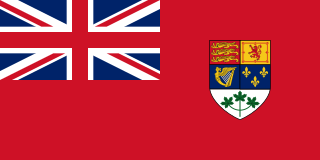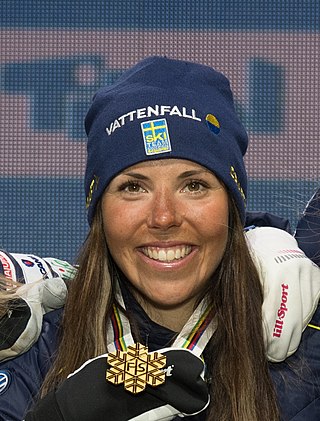The World Scout Winter Games is an international winter sports event for Scouts.
The First World Scout Winter Games was held at Kandersteg International Scout Centre between February 28 and March 3, 2008. Nine teams, representing eight countries participated. The events included cross-country skiing, curling, slalom racing, synchronised skiing, and a triathlon. The overall winners were Sweden, with a team from Svenska Scoutrådet, the Swedish Guide & Scout Council. [1]
The 2nd World Scout Winter Games were to be held in 2010, also in Kandersteg, but had to be cancelled due to a low number of participating countries.[ citation needed ]

The Winter Olympic Games is a major international multi-sport event held once every four years for sports practiced on snow and ice. The first Winter Olympic Games, the 1924 Winter Olympics, were held in Chamonix, France. The modern Olympic Games were inspired by the ancient Olympic Games, which were held in Olympia, Greece, from the 8th century BC to the 4th century AD. Baron Pierre de Coubertin founded the International Olympic Committee (IOC) in 1894, leading to the first modern Summer Olympic Games in Athens, Greece in 1896. The IOC is the governing body of the Olympic Movement, with the Olympic Charter defining its structure and authority.

The 1948 Winter Olympics, officially known as the V Olympic Winter Games and commonly known as St. Moritz 1948, were a winter multi-sport event held from 30 January to 8 February 1948 in St. Moritz, Switzerland. The Games were the first to be celebrated after World War II; it had been twelve years since the last Winter Games in 1936.

The 1952 Winter Olympics, officially known as the VI Olympic Winter Games and commonly known as Oslo 1952, was a winter multi-sport event held from 14 to 25 February 1952 in Oslo, the capital of Norway.

The 1956 Winter Olympics, officially known as the VII Olympic Winter Games and commonly known as Cortina d'Ampezzo 1956, was a multi-sport event held in Cortina d'Ampezzo, Italy, from 26 January to 5 February 1956.
The 1992 Winter Paralympics were the fifth Winter Paralympics. They were the first Winter Paralympics to be celebrated with the International Olympic Committee cooperation. They were also the first ever Paralympics or a Winter Parasports event held in France. They were held at the resort of Tignes as a support venue of the main host city Albertville, France, from 25 March to 1 April 1992. For the first time, demonstration events in Alpine and Nordic Skiing for athletes with an intellectual disability and Biathlon for athletes with a visual impairment were held.
The 1984 Winter Paralympic Games were the third Winter Paralympics. They were held from 14 to 20 January 1984 in Innsbruck, Austria. They were the first Winter Games organized by the International Co-ordinating Committee (ICC), which was formed on 15 March 1982, in Leysin, Switzerland. These Games were accessible for all athletes with cerebral palsy. Three sports were contested: alpine skiing, cross-country skiing, and ice sledge speed racing. The most successful athlete was German alpine skier Reinhild Moeller, who won 3 gold medals and 1 silver medal. The Games, then known as the 3rd World Winter Games for the Disabled, were fully sanctioned by the International Olympic Committee (IOC).

The 2006 Winter Paralympic Games, the ninth Paralympic Winter Games, took place in Turin, Italy from 10 to 19 March 2006. These were the first Winter Paralympic Games to be held in Italy. They were also the first Paralympics to use the new Paralympics logo.

The Nordic Games were the first international multi-sport event that focused primarily on winter sports, and were held at varying intervals between 1901 and 1926. It was organized by Sweden's Swedish Central Association for the Promotion of Athletics, and more specifically by Viktor Balck, a member of that association and one of the five original members of the International Olympic Committee (IOC). It was, in many ways, a precursor to the modern Winter Olympic Games, whose success was a contributing factor to the Nordic Games's discontinuation in the 1920s.

Magdalena "Magda" Forsberg is a Swedish former cross-country skier and biathlete. She was the dominating female biathlete from 1997 to 2002, when she retired, winning the Biathlon World Cup for six years straight. She is also a six-times world champion, a two-times Olympic bronze medalist, and holds the record for the most World Cup victories in women's biathlon.

The Kandersteg International Scout Centre (KISC) is an international Scout centre in Kandersteg, Switzerland. The centre provides lodges, chalets and campsites covering 17 hectares of land. It is open to Scouts year round, as well as to non-Scouts for most of the year. More than 15,000 young people from over 50 countries visit the centre every year.

Canada competed at the 1948 Winter Olympics in St. Moritz, Switzerland. Canada has competed at every Winter Olympic Games.

Sweden competed at the 1948 Winter Olympics in St. Moritz, Switzerland.

Sweden competed at the 1952 Winter Olympics in Oslo, Norway.

Norway was the host nation for the 1952 Winter Olympics in Oslo.

Italy competed at the 1948 Winter Olympics in St. Moritz, Switzerland. Nino Bibbia won the nation's first medal at the Winter Games.

Switzerland was the host nation for the 1948 Winter Olympics in St. Moritz. It was the second time that Switzerland had hosted the Winter Games, after the 1928 Winter Olympics, also in St. Moritz.

Finland competed at the 1952 Winter Olympics in Oslo, Norway.

Our Chalet is an international Girl Guide/Girl Scout centre and one of five World Centres of the World Association of Girl Guides and Girl Scouts (WAGGGS). The others are Our Cabaña, Sangam, Kusafiri and Pax Lodge. Our Chalet is just outside Adelboden, in the Bernese Oberland of Switzerland. Located in the Bernese Alps, it is 1,350 metres (4,430 ft) above sea level.

Marina Charlotte Kalla is a former Swedish cross-country skier who has been competing at international level since the 2003–04 season. Kalla is a three-time Olympian, winning her first Olympic gold medal at the 2010 Winter Olympics in the 10 km freestyle event in Vancouver. At the 2014 Winter Olympics in Sochi Kalla ran the final leg in the 4 × 5 km women's relay race and started third with a 25.7 seconds lag behind the first place but reduced the gap, overtaking her competitors in the final straight, earning Sweden the first gold medal in the women's relay event since 1968. At the 2018 Winter Olympics in Pyeongchang Kalla won Olympic gold medal in the skiathlon event.

The Winter Paralympic Games is an international multi-sport event where athletes with physical disabilities compete in snow and ice sports. The event includes athletes with mobility impairments, amputations, blindness, and cerebral palsy. The Winter Paralympic Games are held every four years directly following the Winter Olympic Games and hosted in the same city. The International Paralympic Committee (IPC) oversees the Games. Medals are awarded in each event: with gold for first place, silver for second, and bronze for third, following the tradition that the Olympic Games began in 1904.